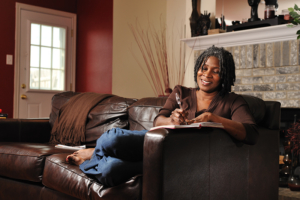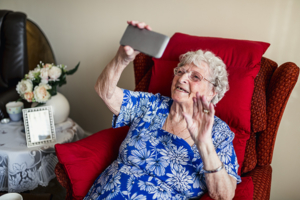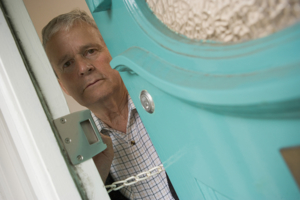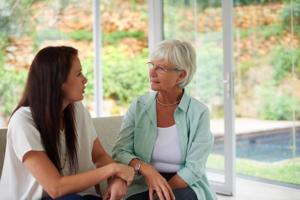
A current study of over 2,000 seniors finds that a remarkable 87% take one or more prescription drugs, and a full 36% are taking five or more – in addition to 38% using over-the-counter meds on a frequent basis. Managing these medications in our later years can be quite challenging, and there are certain risks and dangers which can develop during the process.
As specialists in Fort Lauderdale home care, Responsive Home Care’s caregiving team assists older adults in ensuring meds are taken when and how they are prescribed. It is also extremely important to understand common issues seniors encounter with using their prescriptions, and just how to conquer them. For instance:
Occasionally, signs and symptoms continue in spite of taking medications properly. Busy medical practitioners may prescribe what’s known as a “starter dose” of a medication, which calls for follow-up to find out if adjustment is needed; but in many cases, that follow-up never occurs. Make sure you schedule a subsequent visit with the physician when a new medication is prescribed, and ensure the senior keeps that visit.
Side effects may be more serious than the condition being treated. Of particular concern are medications that impact a senior’s balance and thinking – increasing the prospect of a fall or other dangerous consequences. Prescriptions to be particularly vigilant about include anticholinergics, sedatives/tranquilizers, benzodiazepines, antipsychotics, mood stabilizers, and opiates. Talk with the doctor if any of these medications are prescribed for an older family member and cautiously weigh the possible risks against benefits.
Staying compliant with medication adherence can be a struggle. Remembering that one certain med needs to be taken with food, while another on an empty stomach, another with a full glass of water, one before breakfast and two at bedtime, can make it enormously challenging to take prescriptions exactly when and how they are prescribed. Enlist the services of a home care agency, like Responsive Home Care, for medication reminders.
Cost may be prohibitive. When cost for a certain prescription is high, older adults could very well be inclined to cut their dosage amounts to conserve cost – an extremely risky behavior. Older adults can instead talk to their doctors about generic versions of medications, or any other methods to keep cost at a minimum.
Know about possible interactions with other meds. Bring a full listing of every one of the medications a senior loved one is taking to a physician or pharmacist with expertise in polypharmacy, who can confirm that the drugs can safely be taken in combination with one another. Be sure to include any over-the-counter medications taken routinely as well. For a quick online assessment, this drug interaction checker lets you enter all of a senior’s medications and view any concerns that may then be shared with his or her physician.
Contact the Fort Lauderdale in-home care specialists at Responsive Home Care at 954-486-6440 for additional medication management tips, as well as for professional hands-on help with medication reminders, accompaniment to doctors’ appointments, and much more to help those you love remain healthy and safe.



 Taking care of a senior loved one with Alzheimer’s is a fluid, ever-evolving undertaking. One day may be calm and peaceful, with your parent enjoying activities, eating healthy meals, and sharing laughter with you; while the next day may be filled with agitation, anxiety, and sullenness. Exactly what will today bring?
Taking care of a senior loved one with Alzheimer’s is a fluid, ever-evolving undertaking. One day may be calm and peaceful, with your parent enjoying activities, eating healthy meals, and sharing laughter with you; while the next day may be filled with agitation, anxiety, and sullenness. Exactly what will today bring?

 Whether you’re attempting to tune a guitar, study a new language, or just add cats’ ears to a selfie, there is an app for that! And for seniors who elect to age in place, technology may be an essential element in improving safety, comfort, and overall well-being.
Whether you’re attempting to tune a guitar, study a new language, or just add cats’ ears to a selfie, there is an app for that! And for seniors who elect to age in place, technology may be an essential element in improving safety, comfort, and overall well-being.


 It’s a club no one wants to be a part of; however, as many as 10 million Americans have become members: sharing a
It’s a club no one wants to be a part of; however, as many as 10 million Americans have become members: sharing a  Feeling safe, protected and cared for is so wonderful. Mothers and fathers thrive on ensuring their children are enveloped in the comfort of knowing their needs will be satisfied, providing the safety net that allows them the self-confidence to explore the world around them. However there comes a stage in all children’s lives when the yearning for freedom exceeds the benefit of protection, and they have to discover what it means to stumble, fall and get up again on their own.
Feeling safe, protected and cared for is so wonderful. Mothers and fathers thrive on ensuring their children are enveloped in the comfort of knowing their needs will be satisfied, providing the safety net that allows them the self-confidence to explore the world around them. However there comes a stage in all children’s lives when the yearning for freedom exceeds the benefit of protection, and they have to discover what it means to stumble, fall and get up again on their own.